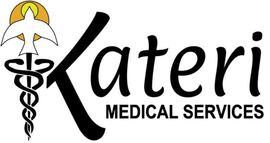Rural Areas
|
Nigeria is on the West Coast of Africa, on the Gulf of Guinea on the same latitude as Venezuela.
Twice the physical size of California, Nigeria is the most populous country in sub-Saharan Africa and the eighth most populous country in the world, with a population of 170 million (2017). The northern third of Nigeria is grasslands gradually turning to desert; the middle is tropical and the southern-most third is equatorial. Nigerian political history changed dramatically in 1960 when Nigeria achieved independence from Britain. The constitution calls for a democratic government similar to that of the United States, with a bicameral legislature and an elected president. Since 1960, Nigeria has struggled to live into the vision articulated by the constitution. From 1960 to 1966, a civilian government was in power. This good beginning was interrupted by the Biafran War ( a civil-war) from 1967 to 1970. From 1970 to 1999, civilian governments were frequently overthrown by a series of military coups. Democratically elected government has prevailed since 1999 with no military interventions. The current President is Muhamadu Buhari, a former general and leader of one of the previous military governments. His five year term is up in 2019 and he is eligible to run for reelection. The Nigerian economy is the fastest growing in Africa and surpassed South Africa to have the largest GDP in 2016. Nigeria is the economic powerhouse of West Africa and is the 5th largest oil producing country in the world. However, the wealth of Nigeria is not widely or evenly distributed. 62 % of the population (105 million people) live beneath the extreme poverty line of $1.25 per day. One in five of all children die before their 5th birthday. These are the people our clinics serve. |
The Areas Our Clinics Serve |
Three of our clinics (Kateri, Iburu and Gidan Waya) are in Kaduna State. The total population of Kaduna State is approximately 6 million (2007). Kaduna is the capital city of the state with a population of 1.7million. Kaduna is part of “The Middle Belt” with a population of approximately 50% Muslim and 50% Christian. This equal proportion of each religion has resulted in increased tensions between the two. Our clinics all operate on the principle that we will serve people of all religions equally and with respect. Our goal is to be peacemakers and agents of reconciliation.
Kateri Clinic located in a market town of approximately 15,000 people on the main highway about equal distance between Abuja and Kaduna (about 90 minutes drive from Kaduna). Because of its location on the highway, the clinic provides first medical care to road accident victims (on average one per day). This clinic also serves many rural farmers who live in the interior villages near Kateri. Iburu Clinic is located in a rural area about 45 minutes southeast of Kaduna. The clinic is located on land which was donated to the Anglican Diocese of Kaduna by the local Muslim village chief with the proviso that the diocese build and run a medical clinic there. This clinic serves mostly poor rural subsistence farmers. This clinic has been open since 2016.
Gidan Waya Clinic is located about 20 miles east of the city of Kafanchan in southern Kaduna State. Gidan Waya is a small town of approximately 35,000 and is surrounded by rural farming villages. We serve both rural farmers and city dwellers. This clinic opened in April of 2018.
Gusau Clinic is being built in Gusau (population 383,000) which is the capital city of Zamfarra State (population 3.8 million). Muslims comprise the overwhelming majority (about 90%) in both Gusua and Zamfarra State. Our clinic here is currently under construction and isscheduled to open in October of 2018.
|



